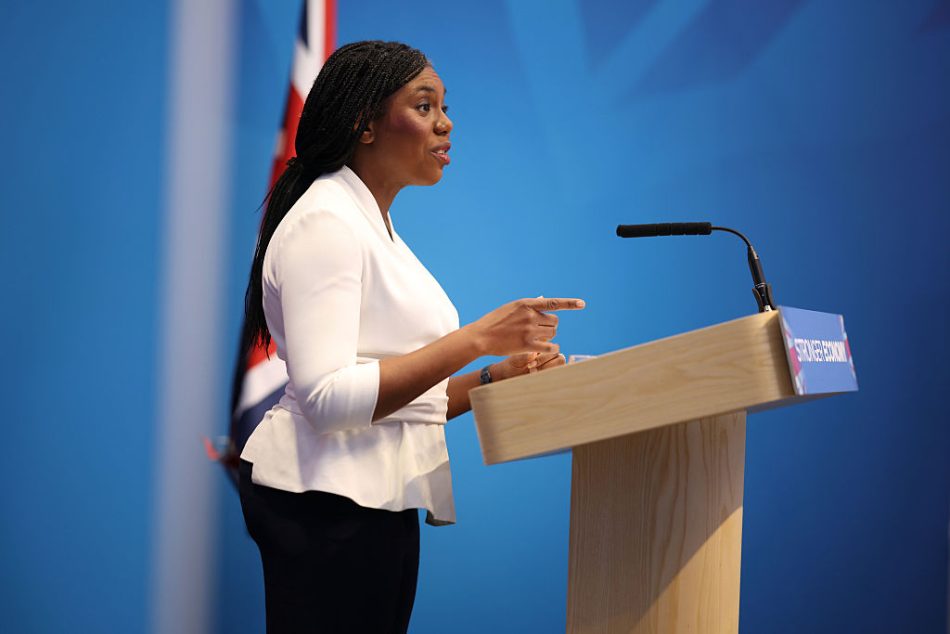After Nigel Farage’s address on Reform’s tax plans yesterday and Rachel Reeves’s effort to lay the groundwork for the Budget this morning, Kemi Badenoch completed the trifecta of economic speeches this lunchtime. Appearing at the Royal Academy of Engineering, the Conservative leader sought to wrestle back the limelight for her party, as pre-Budget speculation ramps up ahead of 26 November. In the era of multi-party politics, it is no longer good enough for Badenoch to simply bash Labour. With the Tories no longer commanding a monopoly on the right, she must focus her attacks on Reform too.
Badenoch’s chosen battleground today was welfare. After the shambles of the summer, when government backbenches torpedoed Liz Kendall’s proposed savings, the Tory leader feels that this is potentially one of her strongest areas. ‘It’s like the trade unions in the 1980s’, one aide told me recently. ‘Labour can’t touch it.’ In her speech, Badenoch posed as the magnanimous statesman, putting politics aside to generously offer Labour the votes to pass its package – only to have them scorned. ‘They are too scared and too weak to make difficult decisions,’ she scoffed of Labour MPs.
Nigel Farage’s pledge to lift the two-child benefit cap allowed Badenoch to paint Reform as being ‘addicted to welfare’ too. In contrast, she argued, the Conservatives were committed to being the party of work – a word she used 55 times in her 20-minute address. Trumpeting the £47 billion of savings she announced at party conference, she promised to use the savings from ‘money being paid to people to sit at home… going to quangos that are wrapping businesses in red tape [and] degrees that leave people with no skills’ in order to scrap all of Rachel Reeves’s new taxes since Labour’s election.
With the Budget on everyone’s mind, it was natural that we saw Badenoch’s greatest hits on the economy – including her favourite jibe that no one on the Labour front bench had ever worked in business. Reeves’s speech, Badenoch said, was ‘one long waffle-bomb, a laundry list of excuses.’ It represented, in Badenoch’s view, ‘a masterclass in managed decline’, which left business leaders ‘none the wiser’, investors ‘confused’ and workers ‘anxious’ because the ‘truth is Labour doesn’t have a plan to get Britain working again.’ It had the Tory MPs at the front of the room clapping – but will the criticism of Reeves be sufficient to cut through the noise outside it?
Today’s speech was Badenoch’s attempt to put clear blue water between the Tories and their rivals – and wrestle back the mantle of fiscal conservatism from Farage. In this area, as so many others, the Tory record is against her. According to the Institute for Fiscal Studies, welfare spending on health-related benefits increased under the Conservatives from £36bn in 2019-20 to £48bn in 2023-24. Yet with such costs skyrocketing even further under Labour, supporters will argue that it vindicates Badenoch’s reputation as a fighter willing to take unpopular but necessary choices.








Comments